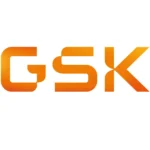Hyundai Motor Co. is in advanced talks with Samsung Electronics Co. to manufacture chips for its autonomous vehicles, marking a significant shift in the Korean auto industry’s semiconductor strategy.
The potential partnership would utilize Samsung’s 5-nanometer SF5A process to produce self-driving chips that Hyundai is developing in-house. The move could help Hyundai reduce its dependence on foreign suppliers like Taiwan Semiconductor Manufacturing Co. while cutting costs through domestic production.
For Samsung, winning Hyundai’s business would strengthen its position in the autonomous chip market, projected to reach $29 billion by 2030. The company has already secured notable clients including Tesla Inc., which selected Samsung to produce its next-generation Full Self-Driving chips for Level-5 autonomous vehicles.
The collaboration reflects a broader industry trend of automakers developing their own chips as vehicles become increasingly software-dependent. Hyundai plans to launch vehicles with its proprietary automotive chips by 2026.
Samsung’s automotive chip portfolio includes partnerships with Ambarella Inc. for its CV3-AD685 chip and Intel’s Mobileye Global Inc. for advanced driver assistance systems, previously sourced from TSMC. These deals highlight Samsung’s growing competition with TSMC in the automotive semiconductor market.




